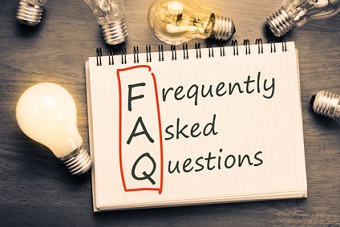Evaluating the Credibility of Your Wound Care Information Sources
January 6, 2017
It is hard to read a newspaper (my preferred news source) or an online news site without discovering false information. I recently read an NPR article about how to vet news yourself and how to recognize this.1 The vulnerability I felt made me think about protecting my decisions from this reporting and even more, how I can help my patients weed out fake reports.
Guidelines for Choosing Credible Wound Care Resources
A year and a half after my mother passed, we still receive mail addressed to her. Ninety-nine percent of this is requesting charitable donations or "health newsletters". I have had difficulty canceling her health newsletter subscriptions that discuss symptoms, various doctors, and opportunities to purchase products that have not been verified by the FDA. The only phone numbers listed connect me to a warehouse for ordering these products. With that said, it is important that consumers have knowledge of credible news sources. Here are a few guidelines to assist in finding this information as it applies to wounds and lymphedema:
- Review the site/publication that you are reading. Is there contact information? Who answers the phone or the email? Are they selling something or trying to help you find appropriate care? If you research their treatment or product, what do reputable associations or websites say about them/the product?
- Do any of the articles mention malpractice or lawsuits?
- What types of doctors are represented in the articles?
- Is the web address or newsletter name suspiciously similar to another well-known site or publication? This can be misleading.
- If you search for information on medications, is the site educating or selling to you? Those sites that are selling can be educational but remember they are trying to push their product. Talk with your physician about medication, even over-the-counter.
- If research results are presented, look for legitimate references.
- If the website is for a clinic, are there multiple disciplines on their team or do they offer a single treatment option that will not address all of the sources of your wound? Are the practitioners certified in wound care or lymphedema?
- Is the language overly dramatic? Be careful of unrealistic outcomes.
- Are local support groups members of national groups?
Wound Care Resources Online
To effectively educate patients, provide this information or offer your own materials and share addresses of reputable websites. Here are a few of my favorite wound education resources online:
- WoundSource
- MedScape
- Advanced Tissue
- National Lymphedema Network
- National Cancer Institute
- Lighthouse Lymphedema Network
Reference:
1. Davis, W. Fake Or Real? How To Self-Check The News And Get The Facts. National Public Radio [Website]. January 5, 2016. Available at: http://www.npr.org/sections/alltechconsidered/2016/12/05/503581220/fake…. Accessed on January 6, 2017.
About the Author
Janet Wolfson is a wound care and lymphedema educator with ILWTI, and Lymphedema and Wound Care Coordinator at Health South of Ocala with over 30 years of field experience.
The views and opinions expressed in this content are solely those of the contributor, and do not represent the views of WoundSource, HMP Global, its affiliates, or subsidiary companies.











